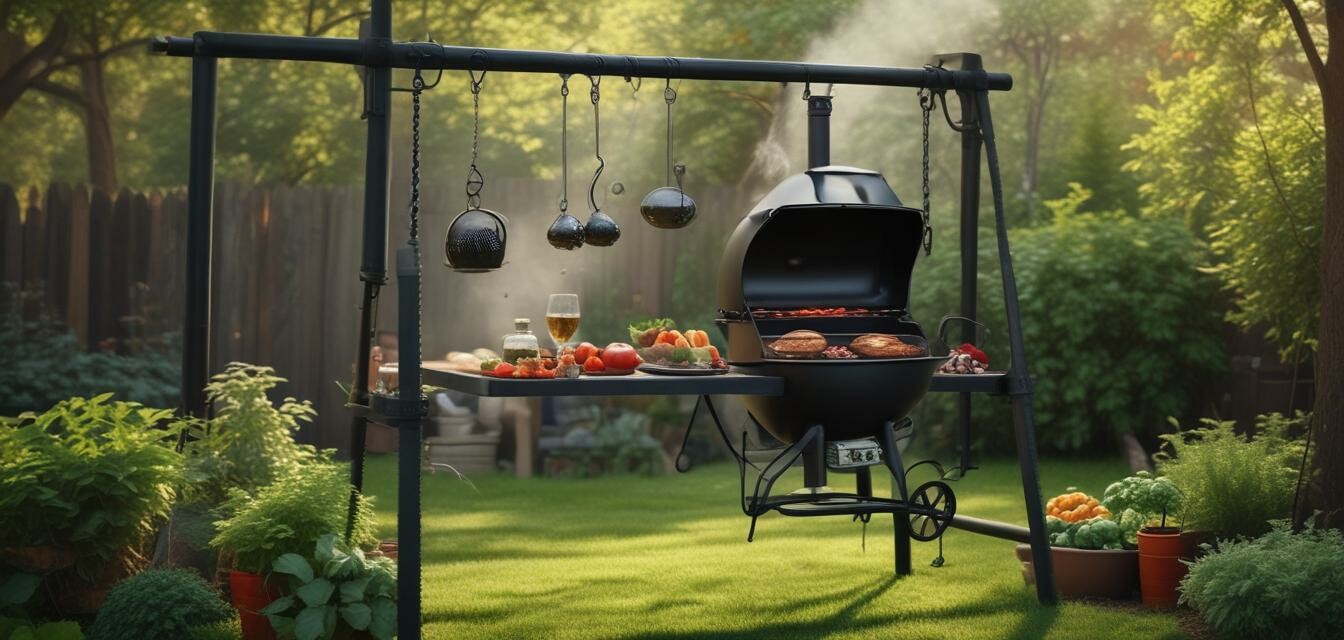
Essential tips for mastering swing grill cooking
- Understanding heat adjustment is key to a perfect grill.
- Preparation is essential for seasoning and marinating food.
- Utilizing wood pellets can enhance smoky flavor.
- Experiment with various cooking techniques for delicious results.
- Regular maintenance of your grill is crucial for longevity.
Are you ready to elevate your outdoor cooking skills? Swing grills offer unique advantages, from versatile cooking methods to remarkable flavor in grilled food. In this article, we’re diving deep into essential tips and techniques to get the most out of your swing grill experience. Whether you're a beginner or a seasoned pro, there’s something new for everyone!
Understanding heat adjustment
The ability to manage heat effectively is crucial for achieving the desired cooking results on your swing grill. Below, we break down different methods for heat adjustment:
| Heat Source | Type | Control Method |
|---|---|---|
| Charcoal | Direct | Vary the amount of charcoal and adjust vents for airflow. |
| Gas | Indirect | Turn knobs to control the flame intensity; use burners for indirect cooking. |
| Wood Pellets | Smoky Flavor | Set the temperature dial according to your desired heat level. |
Direct vs. indirect heat
Knowing when to use direct versus indirect heat is essential. Direct heat is best for searing, while indirect heat is ideal for slow cooking and smoking.
Preparation: Seasoning and marinating
Seasoning your meats and vegetables is a vital step before grilling. Here are some points to keep in mind:
- Marinades: Use acidic ingredients like vinegar or citrus juices to help tenderize food.
- Dry rubs: Combine spices and herbs to enhance flavor.
- Timing: Allow meats to marinate for at least 30 minutes – or overnight for more flavor.
Enhancing flavor with wood pellets
Using wood pellets introduces a rich, smoky flavor to your grilled dishes. Here’s how to choose and use them:
- Choose the right flavor for your dish: hickory for strong flavor, applewood for a milder taste.
- Fill the hopper with pellets before beginning your cooking session.
- Monitor the burn rate and replenish as necessary for consistent smoke.
Experimenting with cooking techniques
Don’t hesitate to try new methods! Here are a few to consider:
- Smoking: Slow-cook items for deeper flavors.
- Grilling: Quick cooking at high temperatures perfect for steak or burgers.
- Roasting: Use the heat in the grill to roast vegetables for a smoky twist.
Regular maintenance for longevity
To get the most out of your grill, regular maintenance is necessary:
- Clean the grill grates after each use to prevent rust.
- Check and empty the ash catcher regularly if using charcoal.
- Inspect hoses and connections on gas grills for leaks.
Conclusion
Mastering the art of swing grilling is easier when you understand the basics of heat adjustment, preparation, and maintenance. By experimenting with flavors and cooking techniques, you’ll surely impress your family and friends. Embrace the joy of outdoor cooking and make every grilling session memorable!
For beginners
- Start simple: Choose easy recipes to build your confidence.
- Keep a fire extinguisher nearby as a safety precaution.
- Practice patience: Don’t rush the cooking process.
Pros
- Versatile cooking methods
- Great flavor enhancement
- Unique outdoor cooking experience
Cons
- Requires maintenance
- Can be challenging for beginners
- Temperature control may need practice
Looking for more grilling tips? Check out our buying guides or explore our swing grill products for the best options available!